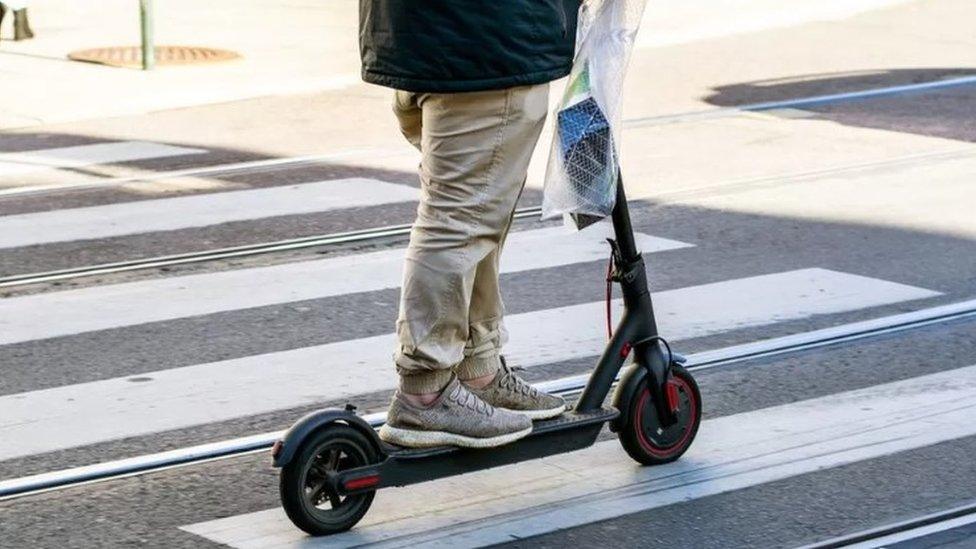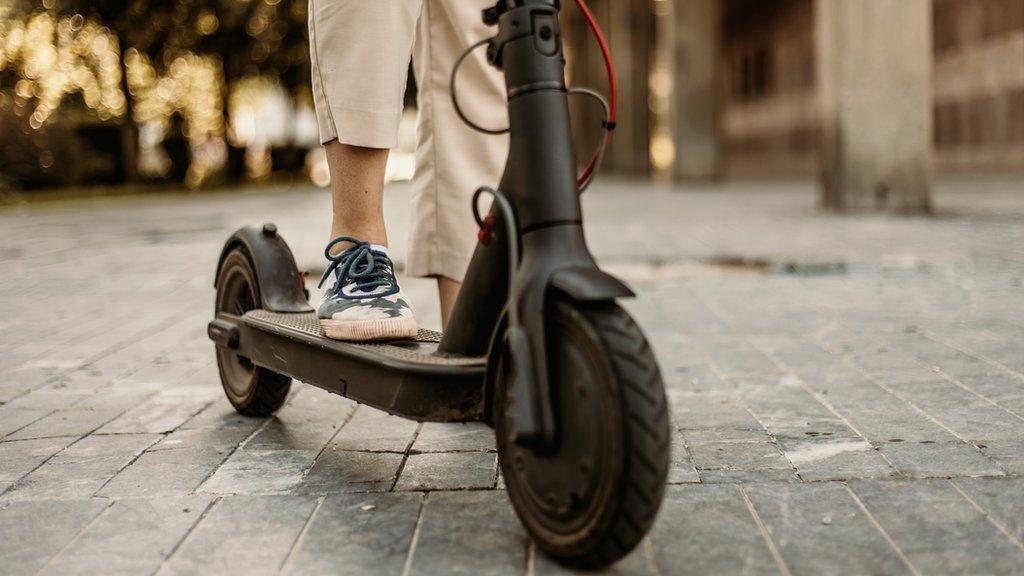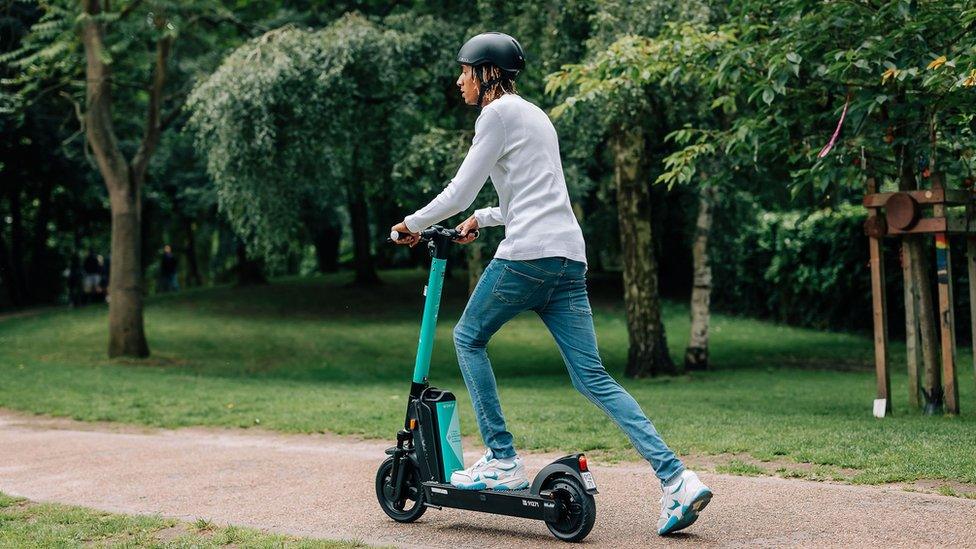E-scooters: Survey suggests one in four have used under influence
- Published

Scientists find 25% of those surveyed have used a scooter while under the influence of drink or drugs
One in four e-scooter users have admitted to riding while under the influence of drink or drugs, a new survey in the West Midlands suggests.
Scientists at the University of Birmingham believe risk-taking behaviour has led to more injuries.
Prof Zubair Ahmed and Nathalie Burt surveyed more than 150 participants about their e-scooter use.
They found more than 25% had used a scooter under the influence, external and more than half had ridden with a passenger.
Almost all the respondents had seen electric scooters being ridden on pedestrian footpaths, the survey found.
Prof Ahmed first became interested in e-scooters after he noticed an uptick in people arriving at A&E at Birmingham's Queen Elizabeth Hospital, having injured themselves while riding.
He said it was not a sudden and dramatic explosion in numbers, but every year he was seeing more and more people who had hurt themselves.
A wider search of the existing literature suggests it is risk-taking by riders that is often leading to accidents, causing injuries to the lower legs, feet and toes, or concussion and head injuries.
Outside existing hire schemes, e-scooters are illegal to use on public roads and pavements in England, external, although they are widely on sale and plenty will be given as presents this Christmas.
But this research suggests people are unaware of how dangerous e-scooters can be.
Hobbling through the doors
By some estimates, there are a million electric scooters in the UK with the majority being ridden illegally.
Under current e-scooter rules, users must hold a provisional or full driving licence, avoid riding on pavements and must ride within trial zones or on private land.
The researchers admit their survey is not a huge sample and it contained a larger proportion of younger people compared to the general population.
But the scientists say it would be interesting to compare their results with data from legal e-scooter hire companies.
Neither researcher wants a ban on e-scooters, as they both say it is a really useful new form of transport.
Rather, they say this result shows a need for better infrastructure and improved education around how to ride e-scooters safely.
Prof Ahmed hopes he will see fewer riders hobbling through the doors of accident and emergency.

Follow BBC West Midlands on Facebook, external, X, external and Instagram, external. Send your story ideas to: newsonline.westmidlands@bbc.co.uk, external
- Published29 November 2023

- Published7 November 2023

- Published2 August 2023
